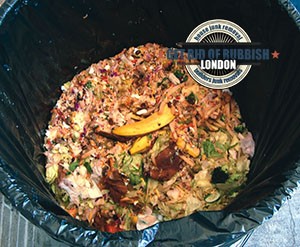We do not have to tell you that London is a huge city with millions of people living or visiting it. The amount of junk that those people are producing on a daily basis is overwhelming. Which is of course good for the rubbish removal companies out there, but in no way helps the environment.
And this junk is very diverse too. Food waste in particular has always been a problem not only in London, but in every big city in the world, so it is interesting how the capital’s administr ation is dealing with an issue of such importance.
ation is dealing with an issue of such importance.
According to a recent report released by the Government, food waste takes up 20% of all junk produced in London. This is a pretty serious number, so it is no wonder that authorities are looking for new ways for facing the question of properly disposing of food junk, and improving the overall efficiency of the process.
One way for dealing with the issue is separate collection of food waste. Here London does not perform so badly. There are 32 boroughs in the capital, and of them 23 free offer a separate food junk collection service of some sort. 16 of the boroughs do not provide any separate collection for flats. As you can imagine, the situation might have been much worse, but just as it was highlighted in the report, there is still much to do in this direction so that the efficiency of food waste collection is maximized in the capital.
What the specialists who have made the survey and the report suggest is quite logical. They say that the best course of action is for local borough councils to start delivering separate food collection services everywhere, without regard for the type of property that is to be serviced. This will greatly improve the recycling capacity and efficiency of London, thus both helping make the city a cleaner and much more pleasant place and help the environment. There is no better way imaginable to kill two birds with one stone, right?
This will require an increase in the Government funds for such initiatives as London Waste and Resources Action Programme (WRAP) and Recycle for London. After all however, money are given for so many things that ignoring the need for additional funding for such an important issue should not be any sort of a problem for the responsible authorities.
Statistics show that in the next five years one million additional tons of food waste are going to be produced on the territory of London. Specialists are concerned about whether the capacity of current facilities can handle such enormous amounts of junk and highly recommend that upgrades of those facilities are also made in due time. They stress the fact that landfill space in the Greater London area is so decreased that it makes no sense to invest into sending food waste to landfills. Instead, investments should be made into recycling, where the future lies for certain.
